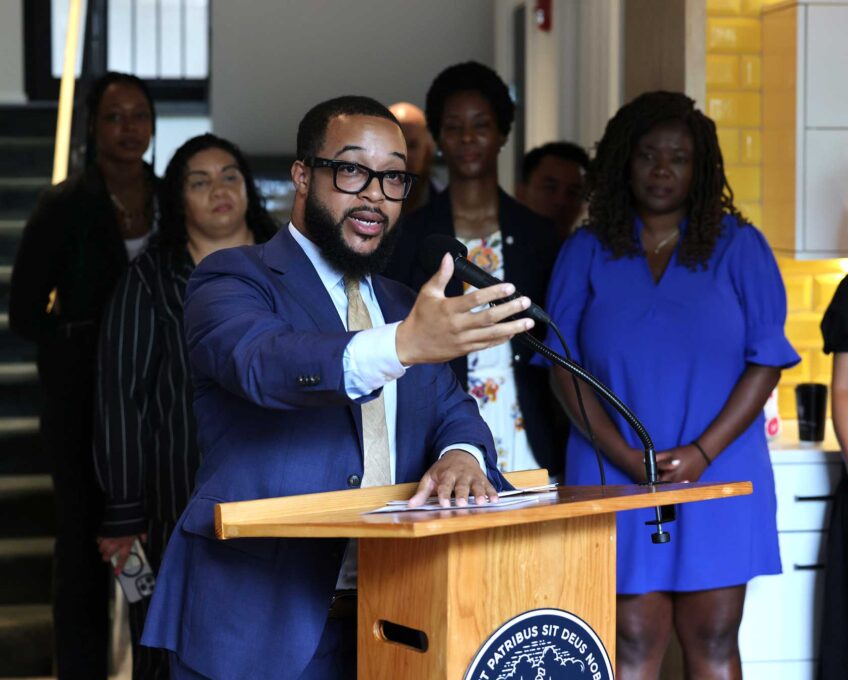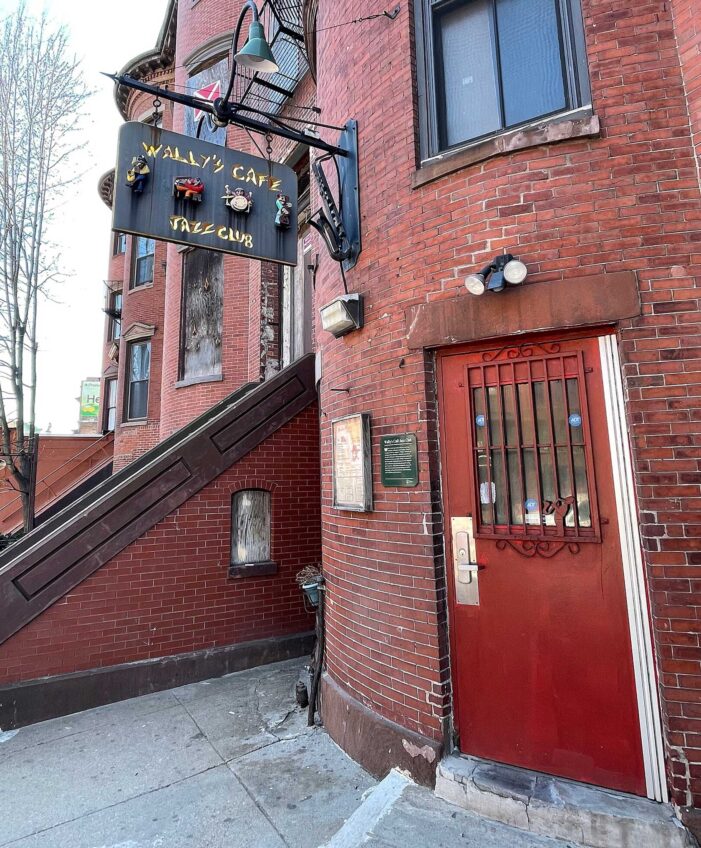City, state and federal agencies have been stepping up efforts to stamp out fraudulent mortgage practices that target communities of color — pricing discrimination and redlining among them.
Mortgage Marketplace — Rights and dispute options
Protections
Redlining, the practice of denying credit to qualified applicants who seek loans for homes in specific neighborhoods, is illegal under the 1968 Fair Housing Act. However, a Buffalo-area bank on September 10 agreed to pay nearly $1 million to settle a lawsuit that alleges it redlined a large, predominantly black community in that city.
The suit, filed by New York Attorney General Eric Schneiderman, said Evans Bancorp created an investment map that excludes much of Buffalo’s East Side, an area that is predominantly African American. Evans Bank has been denying loans for homes in that area since 2009, according to the lawsuit.
Evans Bank denied the allegations but agreed to create a settlement fund to promote home ownership in the East Side and other areas that were allegedly redlined.
“That we continue to see systematic racial and housing discrimination in New York in 2015 is shocking,” Schneiderman said. “We will fight for equal justice under law for all New Yorkers and hold lenders to their legal duty to treat all our citizens fairly in the marketplace.”
The Equal Credit Opportunity Act and the Fair Housing Act — two federal laws — offer protections against discrimination.
The ECOA forbids credit discrimination on the basis of race, color, religion, national origin, gender, marital status and age. Lenders and real estate brokers who arrange financing must comply with the ECOA.
The FHA forbids discrimination in all aspects of residential real-estate related transactions, including:
• making loans to buy, build, repair, or improve a place to live;
• selling, brokering or appraising residential real estate;
• selling or renting a place to live.
Loan application denials
If your application is denied, the lender must give you specific reasons in writing. You also have the right to know why you were offered less favorable terms than you applied for – but only if you reject these terms. Moreover, you are entitled to obtain a free copy of the credit report that the lender used in making a determination of your application. In addition, you have the right to review the lenders property appraisal because some mortgage applications are rejected because of low valuations.
If you suspect discrimination
• Check with your state attorney general to determine if the lender has violated state laws in the past. Many states have their own equal credit opportunity laws.
• Consider suing the lender in federal district court. If you win, you can recover your actual damages and be awarded punitive damages if the court finds that the lender’s conduct was willful. Also, you may recover reasonable lawyers’ fees and court costs. Or you might consider finding other people with the same claim and get together to file a class action suit.
• Report any violations to the appropriate government agency. You can file a complaint regarding a violation of the ECOA with the federal Consumer Financial Protection Bureau. You can file a complaint regarding a violation of the FHA with the U.S. Department of Housing and Urban Development (HUD).
The lawsuit and settlement is part of Schneiderman’s larger, ongoing investigations into mortgage redlining in New York. He said it was prompted by concerns that banks have halted or reduced lending activity in communities of color in the wake of the mortgage crisis and financial collapse of 2008.
The settlement is one of a number of court actions brought by cities and states against banks for alleged fraudulent lending practices. The cities of Baltimore, Chicago, Cleveland, Los Angeles and Memphis have recently filed suits against major banks – with mixed results. On the federal level, the U.S. Department of Housing and Urban Development last May reached an agreement with the Wisconsin-based Associated Bank to settle redlining allegations. Associated Bank agreed to invest $200 million in increased home lending in communities that were allegedly redlined. HUD said it was the largest redlining settlement in its history.
This story originally published on New American Media: http://newamerica…
HUD is now considering new allegations of discrimination-related realtor fraud, another kind of illegal activity in the housing market. The National Fair Housing Alliance, a Washington D.C.-based nonprofit, last week filed a complaint with HUD against a real estate company near Jackson, Mississippi, alleging that the realtor steered potential homebuyers to neighborhoods based on their race.
The housing alliance said its allegations are based on reports of those who took part in a “fair housing test,” whites and blacks who posed as potential home buyers. The complaint alleges that the company’s agents steered white home-seeking posers away from interracial neighborhoods in Jackson, a city with an African-American majority. Conversely, the black “testers” who inquired about properties in the Jackson area were often never called back and were generally provided very limited information, the complaint said.
A similar pattern of steering in many other cities was alleged in a report that the housing alliance produced nearly a decade ago. The study, partially funded by HUD, was based on fair housing tests in New York, Washington D.C., Chicago, Philadelphia, San Antonio, Detroit, Atlanta, Austin, Birmingham, Dayton, Mobile and Pittsburgh.
Despite being better qualified financially, the report said, black and Latino testers were shown fewer homes than their white peers, were often denied information about special incentives that would have made the purchase easier and were required to produce loan pre-approval letters and other documents when whites were not.
Pricing discrimination is another mortgage-market fraud and federal, state and city agencies are taking banks to court for allegedly engaging in the illegal practice. For example, a federal court earlier this month revived lawsuits in which the City of Miami accused three of the nation’s largest banks of predatory mortgage lending to African-American and Latino borrowers.
By a 3-0 vote, the 11th U.S. Circuit Court of Appeals in Atlanta said a lower court erred in dismissing the city’s claims under the federal Fair Housing Act, over what Miami called a decade of lending discrimination in its residential housing market.
Some of recent successful actions on bank discrimination claims are the result of joint-agency efforts on the federal level. For example, the Federal Trade Commission referred its investigation of Countrywide Financial Corporation to the U.S. Department of Justice and partnered with that agency in a joint probe that began in 2012.
In June, the Justice Department announced it had obtained the largest residential fair lending settlement in history to resolve a discrimination lawsuit it filed against Countrywide. Under the settlement agreement, Countrywide, headquartered near Los Angeles, is to pay $335 million in compensation to discrimination victims.
The Justice Department said Countrywide discriminated by charging more than 200,000 African-American and Latino borrowers higher fees and interest rates than whites. The agency said the borrowers were qualified applicants who were charged higher fees and rates because of their race or national origin.
The Justice Department also alleges that Countrywide steered thousands of African-American and Latino borrowers into subprime mortgages from 2004 to 2007, while providing prime loans to whites with similar credit. Subprime loans generally involve higher-cost terms such as prepayment penalties and adjustable interest rates that increase after a few years.
In another joint-agency bank discrimination case, the Justice Department and the federal Consumer Financial Protection Bureau announced in May that they reached a settlement with the San Bruno, CA-based Provident Funding Associates in a lawsuit that alleges the company charged Latinos and African Americans higher prices for loans.
The lawsuit alleged that Provident over-charged black and Latino borrowers nationwide by levying higher broker charges. For example, Provident charged its African-American customers borrowing $220,000 at least $858 more in total broker fees, assessments based on the race — not their credit worthiness, the lawsuit said. The Justice Department also alleged that the bank charged Latino customers borrowing $240,000 at least $615 more in broker fees because of their ethnicity.
Provident agreed to provide $9 million in compensation to Latino and African-American borrowers.
Meanwhile, the Federal Trade Commission has been holding public briefings in many cities on scams — fraudulent mortgage practices among them. In May, the FTC and NAACP co-hosted a “Scam Jam” in Atlanta to hear about scams that affect African-American communities.
This column is part of New America Media’s joint project with the Federal Trade Commission. For more information about how to avoid fraud and scams, go to: consumer.ftc.gov.






